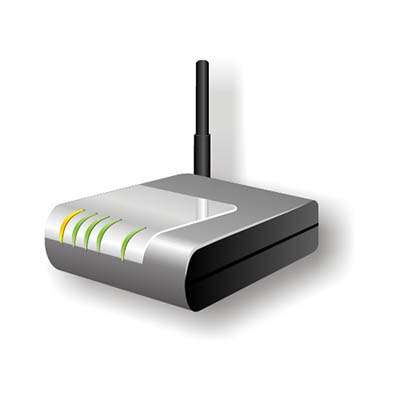Macro Systems Blog
Explaining the Router
The more that society relies on mobile devices and portable computers to work, the more organizations have to contemplate how to manage their wireless network. The router is the piece of hardware that makes the wireless network feasible. Let's examine the router and how its configuration can dictate the strength, reliability, and security of your organization's wireless network.
The Origin of the Router
It has been nearly half a century since the router was "born". Modern router technology has matured to become an essential component in all types of communications. From data to voice to video, the router is a vital piece of technology for almost anyone.
The first router was constructed by BBN in the late 1960s. Called the Interface Message Processor, it was built for use on the ARPAnet, an early predecessor of the Internet. It was swiftly improved upon and in 1981, Bill Yeager, of the Stanford Knowledge System Laboratory, developed the code behind the first multiple-protocol router. Interest in Yeager’s concept led Len Bosack and Sandy Lerner to develop the first Local Area Network (LAN). In 1984 the pair launched Cisco Systems, which is currently the largest networking company in the world.
What Exactly Is a Router?
The definition of a router: a device that serves as a tunnel to the other devices on a network, supplying them with the ability to communicate with each other. Today, most routers have wireless capabilities allowing this to be done without requiring connecting the machines to the router.
Although it's called a wireless router, there are usually two wires that will always be connected to it. One is the power cord; the other comes from the modem. The modem is the piece of hardware that enables connection to the Internet.
How Does a Router Work?
When all the wires are connected, the router will emit a signal that typically travels between 90 and 300 meters and is device-dependent. When you connect a device to a Wi-Fi connection, the signal is dispatched from the router. Many products (including smartphones, laptops, and tablets) have Wi-Fi connections built in, but more than that, these days many consumer goods now come with connectivity. The number of Internet of Things devices continues to grow, so when picking a router, you may have to take that into account.
Router Options and Features
Similar to most pieces of technology, the more features and options a router has, the better it is. Below are a few options and features the modern routers have aboard that can make a difference for your data dissemination and protection.
- Dual-band Wi-Fi - These days most wireless routers have dual-band Wi-Fi, since the standard 2.4GHz frequency is used in so many places that it can be an issue. Today’s routers come with both 2.4 and 5GHz.
- Wireless On/Off Toggle - At some point you may have to disable your Wi-Fi network (troubleshooting interference) and having a dedicated on/off button can be convenient.
- Detachable antennas - Most routers come without visible antennas, instead opting for internal antennae. Sometimes you need more range, though. That’s why buying one with detachable antennas gives you more flexibility and signal coverage.
- IPv6 Support - The Internet’s supply of IPv4 addresses has been worn out, so having support for IPv6 sites is required if you plan on keeping your router for any length of time.
If you are looking for assistance with your organization's wireless network, start by calling the IT professionals at Macro Systems at 703-359-9211.





Comments